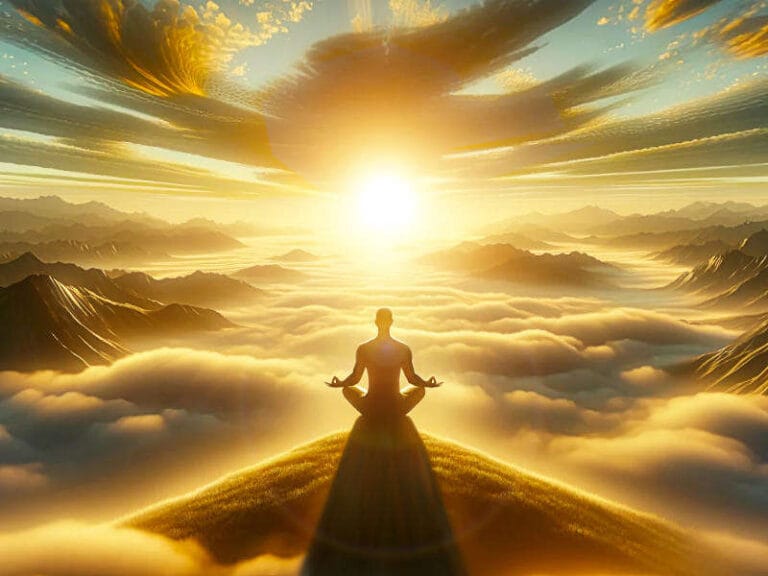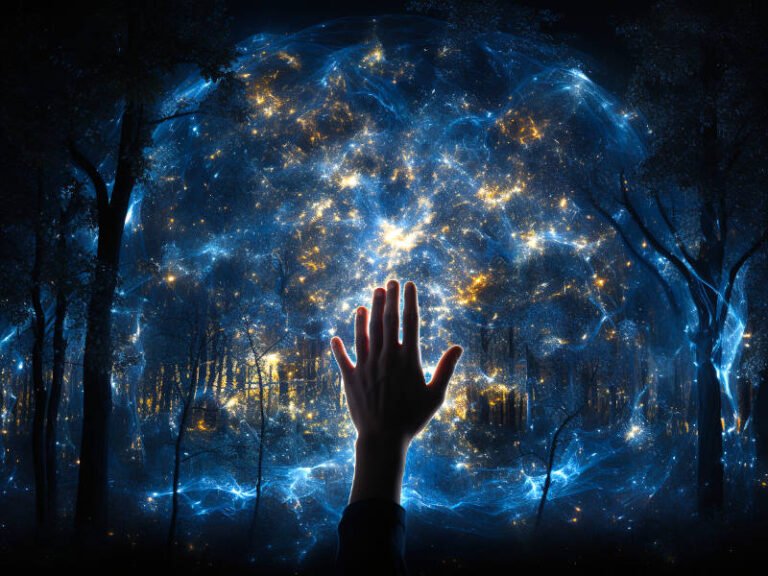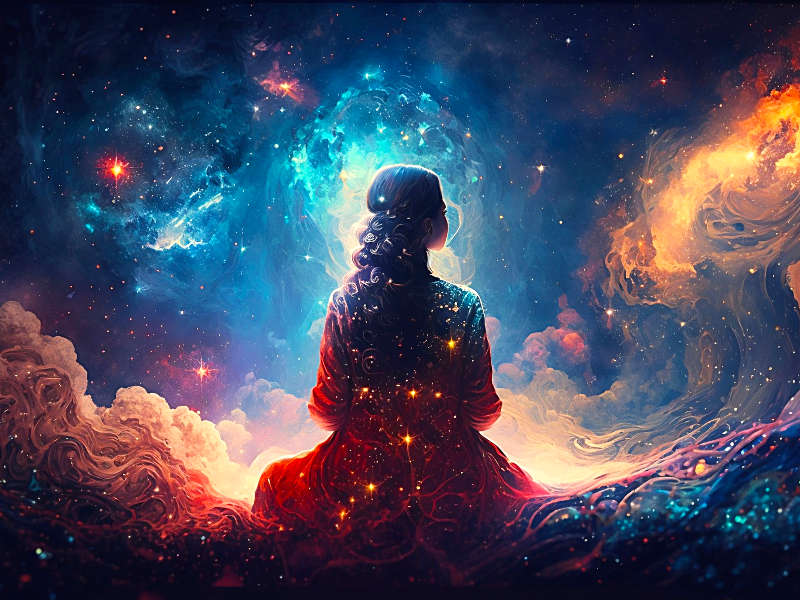
Beyond the Known: Donald Hoffman’s Quest for the True Nature of Reality
Is your perception of reality just an illusion—a convenient fiction created by your mind?
What if the space, time, and physical objects you experience daily are merely shadows of a deeper truth?
Cognitive scientist Donald Hoffman has uncovered something extraordinary: scientific evidence suggesting our brains don’t show us reality—they hide it from us.
“Reality is not what it seems,” Hoffman explains in his paradigm-shattering interview.
His revolutionary research at the University of California, Irvine doesn’t just question our understanding of consciousness—it completely dismantles it.
Drawing from quantum physics, neuroscience, and evolutionary biology, Hoffman presents a compelling case that will transform how you perceive everything around you: consciousness isn’t produced by your brain—it’s the fundamental foundation of existence itself.
For anyone seeking deeper spiritual understanding or questioning the nature of reality, this exploration bridges ancient wisdom with cutting-edge science in ways that will leave you questioning everything you thought you knew.
Prepare to have your perception permanently altered as we journey beyond the known…
You’re Not Meant to Walk Alone
Join conscious seekers and illuminate your true self. Unlock higher awareness, spiritual growth, and whole-person well-being.
Join the Wholebeing Newsletter Today!
By signing up, you agree to receive our well-being emails, special offers, and agree to the Privacy Policy. You can unsubscribe anytime.
The Nature of Reality
Navigating the intricacies of our existence often feels like piecing together an intricate puzzle.
Donald Hoffman introduces an enlightening analogy, likening our understanding of reality to a “VR Headset.”
Just as a virtual reality headset offers an immersive but ultimately constructed experience, our perceptions, he argues, offer us only a tailored representation of a more profound objective reality.
It’s a thought-provoking perspective.
Imagine living inside a game where the graphics and narratives are so detailed and convincing that they feel utterly real.
This is akin to our daily experiences, where what we see, hear, and touch are rendered by our minds, presenting a version of the world that is comprehensible but may not capture its entirety.
Just as a gamer relies on a controller and headset to interpret and interact with the game’s environment, our senses and cognitive processes decode the complex information around us, delivering a reality that’s palatable, but potentially just the tip of an unfathomable iceberg.
This dichotomy between our perceptions and objective reality is a cornerstone of Hoffman’s research, urging us to question the limits of our understanding and to be open to the vast unknowns of our universe.
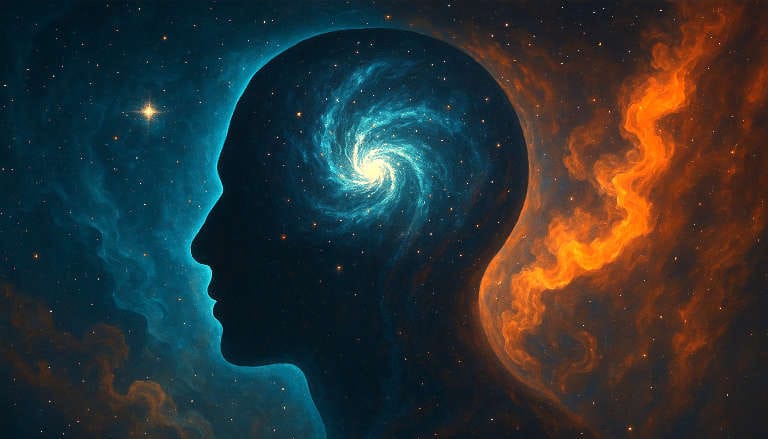
Consciousness as the Fundamental Reality
Delving deeper into the realm of consciousness, Hoffman’s explorations offer a profound shift in perspective.
While traditionally, science has viewed space-time as a foundational aspect of our universe, Hoffman presents a compelling case suggesting otherwise.
According to his groundbreaking research, space-time isn’t fundamental; instead, it’s a construct of our perceptions, a mere aspect of the conscious experience.
This revelation is akin to realizing that the stage upon which we believed the universe played out its grand drama is, in fact, just another prop in the show.
Such a perspective challenges us to differentiate between our perceptions of space-time and its actuality.
Instead of treating space-time as the absolute fabric of reality, Hoffman encourages us to see it as a tool, a lens through which we interpret the vast complexities of existence.
It’s a call to go beyond the constraints of our current understanding, to entertain the idea that beyond the visible horizons of space and time, there lies a reality even more intricate and profound, governed by the boundless realms of consciousness.

The Role of Silence in Creativity
Silence, often overlooked in our bustling world, holds a potent reservoir of creativity.
In the hushed moments, away from the clamor of everyday life, true inspiration often finds its voice.
Hoffman emphasizes the transformative power of such moments, suggesting that they can lead to significant breakthroughs, both scientifically and spiritually.
In our relentless quest for knowledge, we amass a vast array of information.
Yet, sometimes, it’s in the act of stepping back, of allowing the mind a reprieve from its constant search, that we find the deepest insights.
It’s like gazing at a vast canvas of intricate patterns; it’s only when we momentarily divert our gaze that the pieces suddenly fall into place.
The interplay between active learning and passive reflection becomes crucial.
Embracing silence, according to Hoffman, isn’t just about inactivity; it’s about creating a harmonious balance.
It’s this equilibrium between acquiring knowledge and allowing room for inspired thoughts to flourish that truly fuels the fires of creativity.
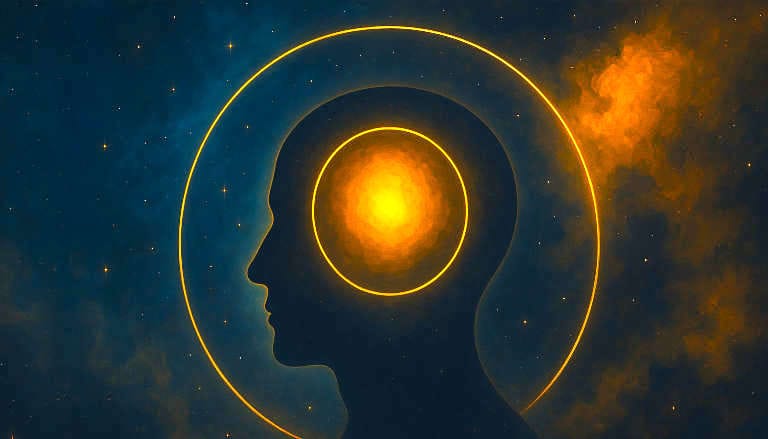
The Interplay of Science & Philosophy
Science and philosophy, two seemingly distinct disciplines, have long been intertwined in a dance of discovery and contemplation.
As science advances, it often illuminates new questions, pushing us to seek answers in the philosophical realm.
Hoffman’s work epitomizes this symbiotic relationship, demonstrating that the rigorous empirical methodology of science can beautifully converge with the contemplative depth of philosophy.
This continuous progression of science serves as an ever-evolving tool, enabling us to delve deeper into understanding the nature of our existence.
Yet, it’s within the realm of philosophy that we often find a framework for these discoveries, a broader context that allows us to grapple with their implications.
Central to this discussion is the notion of “The One.”
This concept, both ancient and profound, suggests a singular, unified entity or consciousness from which all existence springs.
For Hoffman, understanding our connection to “The One” is not just a philosophical endeavor but a deeply scientific one as well.
It challenges us to reconsider our place in the cosmos, urging us to recognize that our individual experiences are mere reflections of a larger, interconnected whole.
In this confluence of science and philosophy, we are invited to explore not just the mechanics of our universe, but also its meaning and purpose.

The Illusion of Free Will
The enigma of free will has long captivated human thought, inviting passionate debate and inquiry.
At the heart of this mystery lies a pressing question: Do we truly possess the autonomy to make independent choices, or are our decisions mere products of predetermined factors?
As neuroscience continues its advancements, it offers fresh insights, suggesting that many of our actions might be the result of intricate brain processes, often occurring outside our conscious awareness.
This perspective seems to challenge the cherished belief in individual agency and self-determination.
Yet, when we consider Hoffman’s groundbreaking work, a new perspective on free will emerges.
If we accept the proposition that our perceived reality is merely a projection within a vast consciousness outside of space-time, then our understanding of choice needs a radical redefinition.
In this expansive framework, free will doesn’t merely pertain to the decisions we make within the confines of our earthly existence.
Instead, it beckons us to contemplate the nature of choice on a cosmic scale, suggesting that our earthly dilemmas might be but a minuscule fraction of the choices that the overarching consciousness faces.
Through this lens, the debate around free will isn’t just about human agency, but about the very nature of consciousness and existence itself.

I hope my content sparks something deeper within: a moment of clarity, a gentle shift, or a deeply felt truth. Creating meaningful content takes time and heart. If you found value here, consider supporting my work to keep this space alive.
Vlad
Bridging Ancient Wisdom with Modern Understanding
Hoffman’s revolutionary insights reveal how ancient contemplative traditions and cutting-edge science converge on a single profound truth: what we perceive as reality is merely one facet of a greater whole.
His work doesn’t just bridge spiritual and scientific understanding—it shows they were never truly separate.
If our perceived reality is just a projection of something far more expansive, we must question everything: our experiences, relationships, and purpose.
This perspective invites us to live with greater awareness, compassion, and connection.
The quest to understand consciousness has always transcended time—from ancient sages to modern researchers.
Hoffman’s work illuminates this timeless journey, reminding us that in honoring ancient wisdom while embracing scientific discovery, we participate in the magnificent dance of existence itself.
For More Insights, Experience Hoffman’s Words on André Duqum’s Channel
Share the Love, Spread the Wisdom
You May Also Like:


